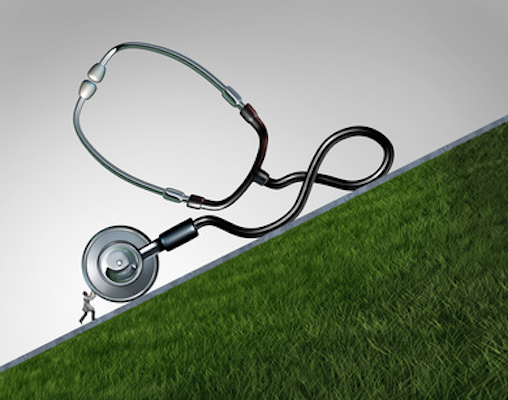Doctors get burnout all the time. I should know because I am one of them.
Why I Went Into Medicine
To be honest, I didn’t see it coming. All I wanted to do was to help people.
Back in high school, I made friends with a very special girl. She was not your average teen. Jenny was vivacious and carefree and, dare I say it, the very opposite of me. Despite my being a bit of an introvert, we became fast friends. That’s what made it so hard for me when she was diagnosed with leukemia.
Jenny’s treatments ran the gamut, and she was in remission for a time after a bone marrow transplant. Unfortunately, she relapsed senior year and did not live to see graduation day. Her passing changed me forever.
Seeing what Jenny had gone through, her family and her friends too, it became my life’s mission to prevent that kind of suffering. Even though they didn’t cure her, doctors made a difference in Jenny’s short life. If I could stop people from getting sick or at least help to keep them healthy, maybe I could make a difference too.
Putting Others First, Myself Second
That meant sacrifice, of course. So what if I had to go through months of gross anatomy, smelling like formaldehyde because no matter what I did the stench of the stuff oozed from my pores? I was willing to go through the vigorous years of study, missing out on so many things I was passionate about and losing countless hours of sleep while training 80 hours a week. It was not for my benefit. It was for the benefit of mankind.
I’m sure medical school applications are full of all sorts of altruistic stuff like that, but pre-med students are nothing if not big-hearted good-doers. Well, most of them. While a few are in it for the ego and maybe even for the money (certainly not those that go into primary care), the overwhelming majority simply want to help people. More than anything, they want to practice medicine, not run a business.
As a family physician, I believe I accomplished that. I delivered babies, watched them grow up, and took care of people in sickness and in health. I held the hands of people at the end of their lives. It was a true calling.
When Burnout Strikes
Then it happened. Burnout.
Exhausted in my office one night, four hours after a 10-hour shift, a day people tore into me for not prescribing medications they did not need, a day people complained about my running late for their appointments (not realizing it was because I had to stabilize someone with a suspected heart attack), a day I fought insurance companies for denying treatments to people who needed them, a day I skipped lunch to call people with test results, a day I delivered bad news to a family I had known for years, a day not unlike most other physician work days honestly, I sat alone and cried.
My 2-year-old son was at home without his mom and here I was doing administrative work and making phone calls. The red tape had me spending more time on paperwork than actual patient care, people were directing hostile energy towards me, I was fighting fights with insurers I could never win, and my personal life was more than off-balance. It was hanging off a cliff. How had it come to this?
Normally, my priorities steer towards everyone but myself, but with burnout on my heels, I had nothing left to give. Burnout wasn’t an issue of resiliency. If it was, I could have walked away at any time. Instead, I pushed on, working to change things in a health care model that did not focus on health. The system was broken, if not outright abusive. It treated everyone, patients and providers alike, as if they were on an assembly line, as if their individual stories and contributions mattered little to the big business that was “medicine”. It was finally time to step back and make a change in my life. I am forever grateful I did.


Leave a Reply